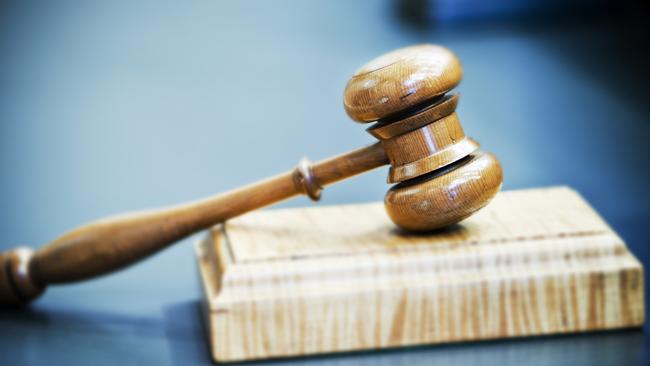Courts in crisis: Overhaul of NSW judicial system sought to ease pressure on strained resources
COURTS that deal with the state’s most serious crimes are “approaching a state of crisis” because criminals are being allowed to play a game of legal poker with the justice system.

NSW
Don't miss out on the headlines from NSW. Followed categories will be added to My News.
COURTS that deal with the state’s most serious crimes are “approaching a state of crisis” because criminals are being allowed to play a game of legal poker with the justice system.
A report by the NSW Law Reform Commission has called for an overhaul of the system because of “systemic issues” where choked court resources are being drained further because criminals are pleading guilty late in the judicial process, often on the first day of their trials or even later.
According to the report, written by former Supreme Court judge Anthony Whealy QC and other top legal minds, the criminal justice system has evolved to where criminals expect to be overcharged by police and believe they will be allowed to plead guilty to a lesser charge if they hold out to negotiate.
Delays in the prosecution serving evidence and the late briefing of prosecution lawyers who negotiate what charges a criminal will face have also contributed to “a self-reinforcing system” where late guilty pleas are a “normal, and sometimes necessary, strategy” for defence lawyers, the report said.
The practice puts major pressure on the stretched resources of the NSW Supreme and District Courts as well as the police, the Office of the Director of Public Prosecutions and Legal Aid, the report said.
It also has a negative impact on the victims of crime who are left feeling “disempowered”, “disenfranchised” and with a sense that justice hasn’t been done when they see a criminal plead to a lesser charge and receive a discount on their sentence.
The report has been tabled in the NSW Parliament and makes recommendations on how the court system could be reformed to ensure that criminals plead guilty earlier in their cases.
NSW Attorney General Gabrielle Upton said she was “closely considering” the report’s recommendations.
Shadow attorney general Paul Lynch welcomed the recommendations but said he was “pessimistic” about whether the government will adopt them.
According to the authors, 83 per cent of district court trials in 2013 were resolved by a guilty plea — meaning tax payers avoided paying for the trial, including the costs for the jury and publicly funded legal representation.
Of that figure, 35 per cent, or 915, guilty pleas “occurred late” and after the matter had been committed for trial.
In 2012/13, 66 per cent of all late guilty pleas occurred on the day of the trial and 63 per cent were to amended charges, the report said.
“From the evidence we believe it is not an overstatement to say that (higher courts hearing serious criminal) proceedings have major systemic issues and are presently in, or approaching, a state of crisis,” the report said.
The authors have called for the ODPP to be given a specific time period in the local court — before the matter reaches a higher court — to lock in what charge the accused person will face and “get the charge right early”.
They have also called for a “legislative requirement” for prosecutors to provide an initial brief of evidence to support the charge in the local court.
Committal hearings in the local court, which tests if the evidence is strong enough to go to trial in a higher court, would be abolished for case management and mandatory conferencing in the hope they will see guilty pleas entered earlier.
The report also called for a “three tiered” regime for jail sentence discounts where the maximum 25 per cent would only be given if a guilty plea is entered in the local court or if a criminal offers to plead early to a different charge they are later convicted of.
The ODPP should give “victims the opportunity to put their views in writing about any proposed negotiations with the defendant”, the report said.
HOW OUR CURRENT COURT SYSTEM WORKS
Serious criminal cases are initially heard in the local court.
If the local court decides the evidence is strong enough to get a conviction the cases are committed to either the District or Supreme Courts for trial.
But court time and resources are being wasted because many criminals are pleading guilty either on the first day or later in their trial in a higher court.


